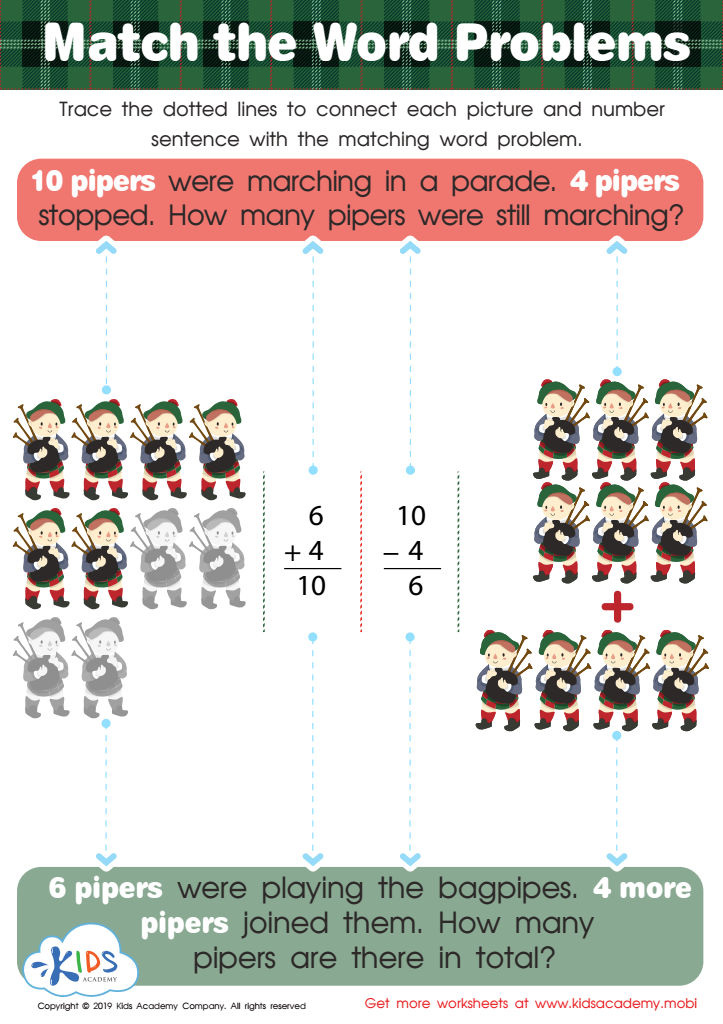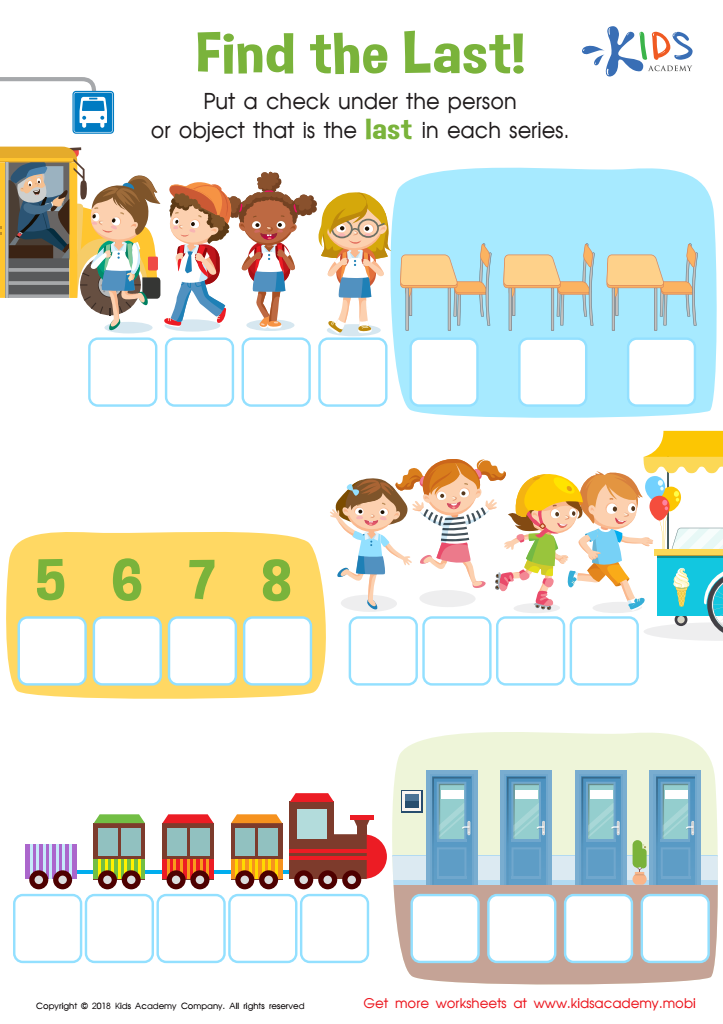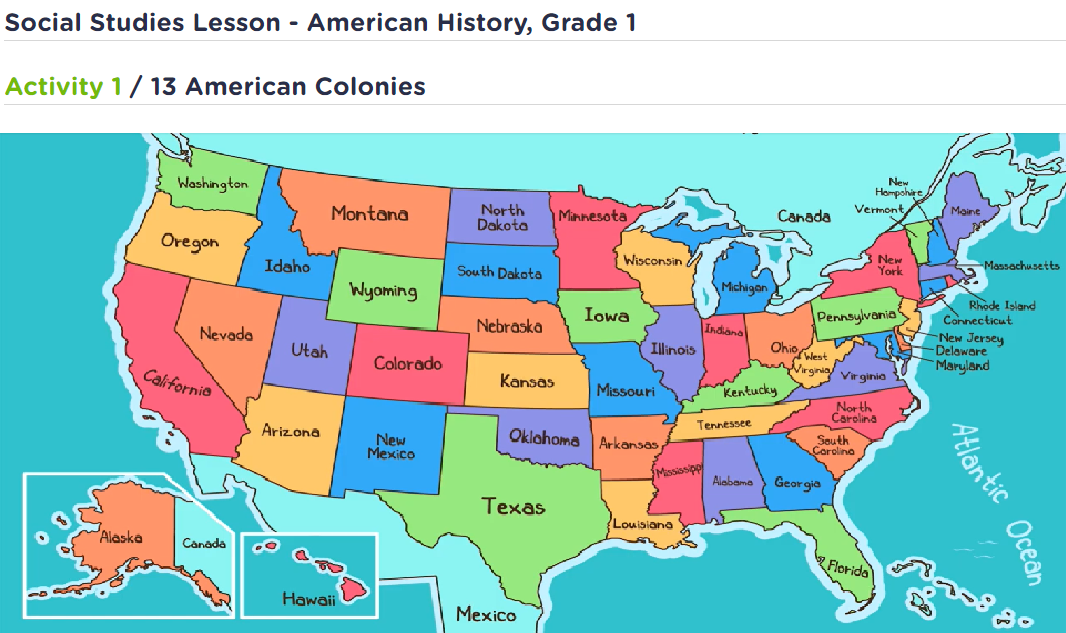Logical thinking development Normal Math Worksheets for Ages 4-5
3 filtered results
-
From - To
Enhance your child's logical thinking skills with our engaging Normal Math Worksheets designed for ages 4-5. These worksheets promote problem-solving, pattern recognition, and critical thinking in a fun and interactive way. Tailored to young learners, each activity encourages exploration and understanding of basic mathematical concepts through visuals and relatable context. Parents and educators can easily incorporate these worksheets into their teaching routines, making math enjoyable and effective. Watch your child's confidence grow as they master each concept, laying a strong foundation for future learning. Dive into the world of logical thinking and foster a love for math early with our thoughtfully crafted resources!


Tricky Problems Worksheet: Part 2


Match the Word Problems Worksheet


Find the Last! Worksheet
Parents and teachers should prioritize the development of logical thinking and foundational mathematics in children aged 4-5 because these skills are crucial for later academic success and everyday problem-solving. At this developmental stage, children are naturally curious and eager to explore concepts such as counting, sorting, and patterns. Engaging in activities that promote logical thinking lays the groundwork for critical cognitive abilities like reasoning, deductive thinking, and problem-solving.
Logical thinking fosters a child's ability to make connections and understand relationships between ideas, which is a fundamental aspect of learning math. By encouraging these skills early on, educators can help children develop a strong understanding of numerical concepts and basic arithmetic, which they will build on in subsequent grades. Additionally, activities that increase logical reasoning—such as puzzles, games, and open-ended questions—stimulate cognitive development while also making learning enjoyable.
When children grasp these early mathematical concepts, they not only perform better in school but also build confidence in their abilities. This foundational skill set benefits their academic journey and enhances their everyday decisions, preparing them for a future where critical thinking and problem-solving are essential. Therefore, investing in logical thinking and normal math skills at this age is invaluable.
 Assign to My Students
Assign to My Students



















